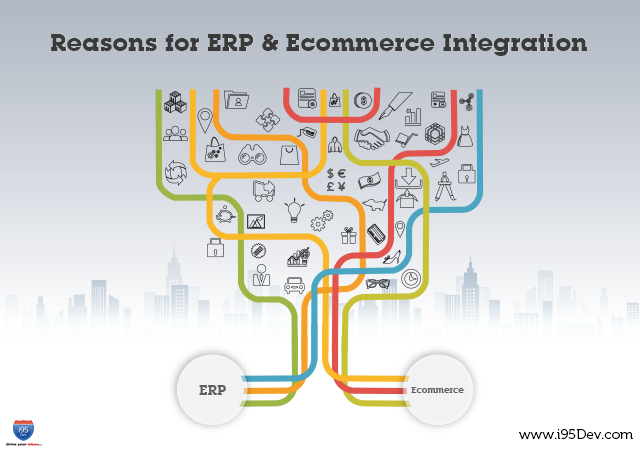April 7, 2014
How eCommerce is enabling the F&B
industry survive the COVID-19 pandemic

According to eMarketer, the world ecommerce market is growing at more than 15% a year and expected to touch $1.6 trillion by 2016.That means your company needs the tools and services to compete with 15% percent more competition each year, and the most important tools in your arsenal should be a robust Enterprise Resource Planning (ERP) system coupled with the ecommerce system. Imagine if your ecommerce platform is not integrated with ERP System you will end up in investing a lot of time in manually entering data from multiple channels, making silos of information and tend to miss out on the several benefits of an integrated system. Imagine a situation getting the e-commerce data directly from your ERP system without any human interaction, saving your time n effort.
Here are few reasons integrating ERP to e-commerce site makes sense:
- Business Benefits
- Informed Sales-One of the most common customer service problems is slow response to customer’s issues and complaints. No customer wants to experience problems and defects and feel like they are not being heard by the company. This is why Integration eliminates this problem by providing you with a way to monitor your customers’ cases from a central site. This will allow you to ensure that all customer queries are being handled in a timely manner
- B2B Customers- Traditionally ecommerce is always associated with B2C and most retailers leverage the B2B functionality of their ERP system by manually entering data into it. With B2B modules like Advanced Quotation module, B2B shipping module, Sales Literature module , integrated with ERP, retailers can extend their traditional ecommerce store to their B2B customers
- Operational Benefits
- Consistent product Information–Online shoppers tend to shop from multiple channels so it is important for retailers to maintain consistent information across all the channels they are selling through, if your ecommerce store is not integrated with ERP system you will face difficulty in maintaining and updating information regarding your customer, inventory purchase order in two or more systems. Integration helps you in reducing your cost of operations and improves customer experience with your ecommerce store front.
- Improves Inventory Management– Inventory management is a crucial part of ecommerce. It is twice as important when you have two or more warehouses / suppliers / drop shippers located worldwide. Ecommerce integration with ERP enables you can have updated inventory information in ecommerce which will prevent you from overselling to your customers, both B2B and B2C, increasing satisfaction of your customers.
To know more about other benefits under following categories business benefits, operational benefits, Informed decision making, better customer service etc. Click here to download our eBook on Reasons for ERP & eCommerce Integration.
Recent Blogs
Subscribe to our blogs




